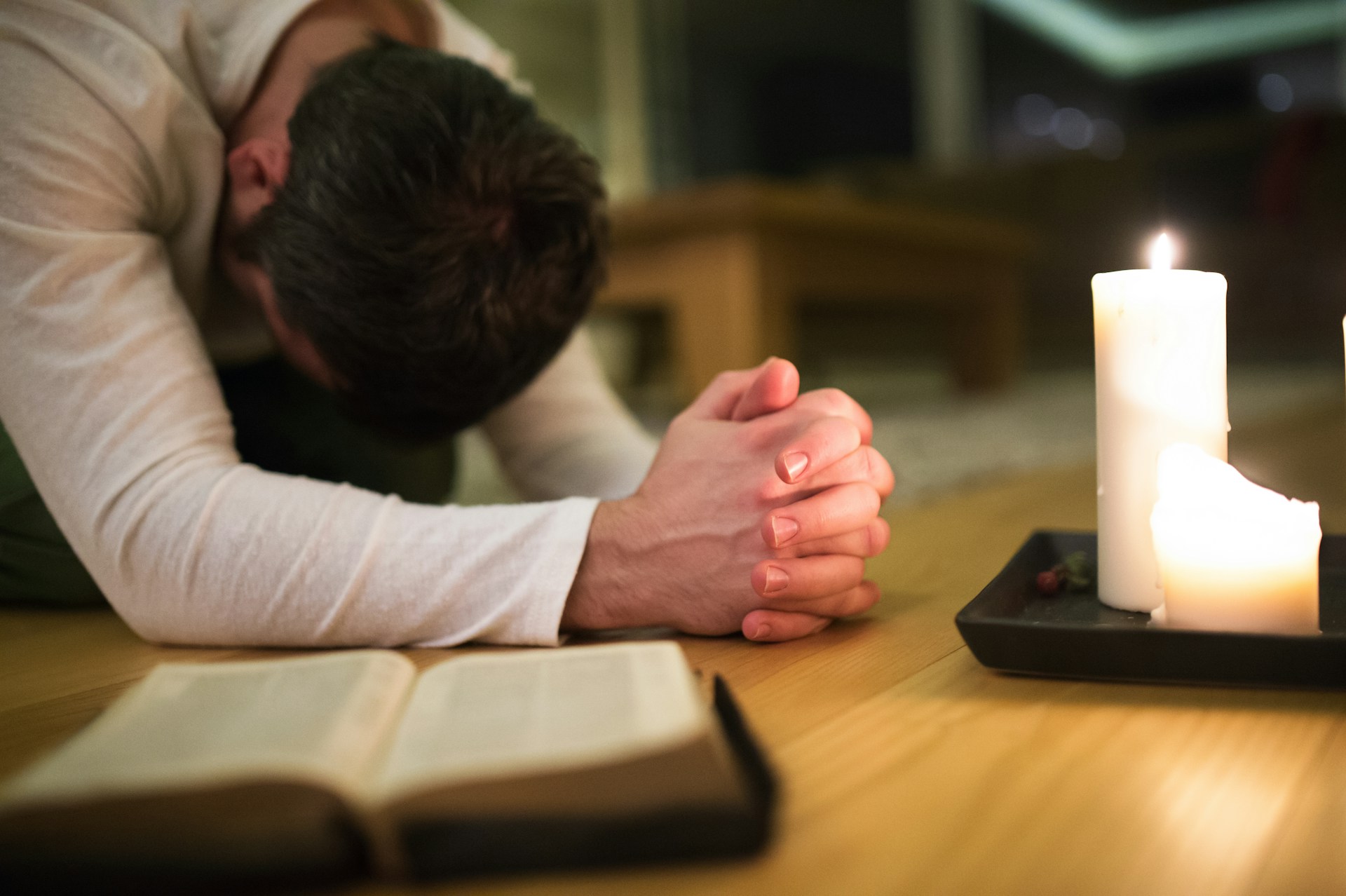We’ve all felt it at some point in our lives. Perhaps it was before an important first date, in a stressful situation such as taking a test, or when you had to do some public speaking. You felt your heart rate increase, your palms get a little sweaty, you started to feel a bit tense and restless, and your thoughts started to race.
 We’re talking about anxiety, that all too common feeling of dread and unease that descends upon us when we’re in a stressful situation or one where the outcome is important and uncertain.
We’re talking about anxiety, that all too common feeling of dread and unease that descends upon us when we’re in a stressful situation or one where the outcome is important and uncertain.
Occasional anxiety is common and even expected as we go through the everyday stresses of life. This is our body’s natural response to stress, and it helps us to prepare for and deal with those situations. However, for some people, anxiety doesn’t come and go. Instead, it is a more or less permanent state of being.
When anxiety interferes with your daily functioning and enjoyment of life, becoming a hindrance rather than the help it is supposed to be, you may have an anxiety disorder. A key indicator of an anxiety disorder is having feelings of fear and worry that do not dissipate.
The experience of anxiety in its more problematic forms is quite common, with around 40 million adults in the United States, or 18% of the population, being affected by anxiety each year. The good news is that the outlook is good for those struggling with anxiety as it is treatable.
Anxiety can be dealt with using tried and true DIY coping mechanisms and these can be combined with treatment from a mental health professional when such treatment is required. Being able to cope with anxiety using these skills will help you in the moment, but also over time as you get better at using them as needed.
Where might my anxiety be coming from?
Our ability to get anxious allows our bodies to respond swiftly to possible threats. Anxiety triggers the fight-or-flight response mechanism, but the problem comes when this mechanism is continually triggered in everyday situations. This causes strain on the body.
This problematic form of anxiety is not caused by any one specific thing, but it can be the result of negative life experiences such as going through trauma. Experiences such as childhood neglect, the loss of a parent, being bullied or isolated, and going through physical or emotional abuse can all be underlying reasons for uncontrolled anxiety.
Others may feel anxious due to life stresses such as financial difficulty, going through inordinate amounts of change, experiencing a lot of uncertainty, having mental or physical health challenges, and taking particular psychiatric medications as well as recreational drugs and alcohol. All of these may be factors that are triggering one’s anxiety and seeing a mental health professional can help you work through your causes of anxiety.
Techniques for coping with anxiety
 There are many different techniques available to help you cope with anxiety. Some of these are geared toward dealing with anxiety in the moment so that you calm down and face whatever challenge lies ahead of you. Other coping mechanisms are effective over the long term, helping you reduce anxiety over time.
There are many different techniques available to help you cope with anxiety. Some of these are geared toward dealing with anxiety in the moment so that you calm down and face whatever challenge lies ahead of you. Other coping mechanisms are effective over the long term, helping you reduce anxiety over time.
As you try out these various techniques, it’s important that you find whatever is comfortable for you. Not every technique will appeal to you, and with some techniques, it may take a little time to grasp the idea and begin to see tangible results. To get the most out of these techniques, give them a reasonable amount of time before moving on or trying something else.
Challenging your thoughts
Anxiety is often fueled by thought patterns that distort reality and exacerbate the anxiety. By challenging your thoughts and countering them with positive and healthy thoughts, you can reduce your anxiety. These healthy thoughts keep anxiety at bay by weighing the situation and seeing that it is not threatening or interpreting a situation in a way that does not result in fear.
If, for example, your significant other says they want to talk, instead of leaping to the conclusion that something is wrong, you can think and focus on the possibility that they just want to talk. Additionally, you can challenge unhelpful patterns of thinking by accepting that there are some things you cannot control, and by doing your best rather than aiming for perfection.
Deep Breathing
Anxiety can change how you breathe, making you take shallow breaths and feel on edge. Deep breathing is about deliberately slowing down your breathing to activate your parasympathetic nervous system by slowing your heartbeat, stabilizing your blood pressure, and filling your lungs with oxygenated air.
Activating the parasympathetic nervous system reduces the symptoms of anxiety and calms you down. Deep breathing, which is also known as diaphragmatic breathing, abdominal breathing, and belly breathing, helps your body to relax.
Deep breathing can be paired with progressive muscle relaxation or guided imagery, which are other relaxation techniques. To breathe deeply, breathe in slowly through your nose, expanding your chest and stomach as you do so, then breathe out slowly through your mouth, repeating this action until you begin to relax.
Stay or get healthy
Having a healthy body and mind makes a significant impact on how you respond to stress and anxiety. You should exercise regularly, whether that’s taking a walk, swimming, running, cycling, dancing, or otherwise staying active. This can shift your mind’s focus away from your anxiety, decrease muscle tension, and increase the availability of serotonin to elevate your mood.
 Eating balanced meals and changing your diet can, over the long term, help to reduce anxiety. Do not skip any meals, and eat foods and supplements such as lemon balm, green tea, valerian root, kava kava, and omega-3 fatty acid rich foods. It can take time for these foods to make a positive difference, so give it time.
Eating balanced meals and changing your diet can, over the long term, help to reduce anxiety. Do not skip any meals, and eat foods and supplements such as lemon balm, green tea, valerian root, kava kava, and omega-3 fatty acid rich foods. It can take time for these foods to make a positive difference, so give it time.
Changing your diet may include limiting your intake of alcohol, caffeine, and smoking. This can potentially increase your symptoms of anxiety and depression in the short term, however, it will help.
Additionally, if you are taking other medications be sure to discuss your diet and any supplements you want to take with your doctor. Aside from your diet, getting enough sleep and making use of your social connections will help you reduce anxiety symptoms.
Write down your thoughts
This is a great way to figure out what’s bothering you and to get to the root of your anxiety. Putting your thoughts down in a journal allows you to explore your thoughts and emotions, and it also allows you to begin understanding your anxiety. Additionally, when you write down what makes you anxious, it can make it somewhat less daunting when you examine it objectively.
Identify and manage your anxiety triggers
One advantage of writing your thoughts down is you can begin to detect patterns in your thoughts as well as begin identifying what most often triggers your feelings of anxiety. These triggers can be as mundane as caffeine or drinking alcohol, but they can also be related to a specific person or particular situations.
When you identify your triggers, you can limit them where possible. However, there may be some triggers such as your work environment that you can’t change. This is when you should exercise caution.
While it may seem prudent to avoid your anxiety triggers, the downside of that is that avoidance can deepen your anxiety. One of the therapies that can help is exposure therapy which places you in a safe environment and repeatedly exposes you to a stimulus that causes you fear or anxiety to reduce its impact on you.
Pursue professional help
Talking with a friend or other loved one about your anxieties can help you work through them. An effective avenue to pursue is getting help from a mental health professional such as a therapist or counselor. Exposure therapy, for example, helps you get used to whatever stimulus triggers your anxiety to eliminate or reduce the anxiety altogether.
This type of therapy helps by placing you in real-life situations or by asking you to imagine yourself in particular scenarios. Your counselor may also use systematic desensitization, where they expose you to the stimulus while you’re performing relaxation exercises so that you begin to associate the feared stimulus with relaxation.
In addition to exposure therapy, you can also make use of cognitive behavioral therapy (CBT) which helps you adopt different ways of thinking about and reacting to anxiety-inducing situations. Your therapist can help you identify unhealthy thought patterns and change them toward a more positive outlook. Changing the way you think may also result in not trying to do everything at once, instead setting smaller targets for yourself that you can easily accomplish.
Not only that, but your counselor can help you cultivate a healthy focus on the things you can change, and maintain a positive attitude as you go through life. They may encourage you to take steps such as getting involved in your community as that can give you a break from your everyday stress.
If you have severe anxiety that hinders your everyday functioning, you should ask your doctor or mental health practitioner about medications that can help alleviate your symptoms or address any underlying causes of anxiety.
Get help to deal with anxiety
The Bible urges us to not be anxious about anything, but instead to present our requests to God by prayer and petition with thanksgiving (Philippians 4: 6). This alerts us that God doesn’t want us trapped in anxious thinking. Instead, God wants peace in Christ Jesus that transcends human understanding.
These remarkable promises are available to us. Your Christian counselor will use techniques such as exposure and cognitive behavioral therapy as well as the resources located in and rooted in Scripture to help you overcome your anxiety. Reach out today to find help and bring your anxiety under control.
“Grassland”, Courtesy of Jeroen Bendeler, Unsplash.com, CC0 License; “Still Pond”, Courtesy of Ales Krivec, Unsplash.com, Unsplash+ License; “Scenic Overlook”, Courtesy of Colton Duke, Pexels.com, CC0 License; “Meditate”, Courtesy of Aaron Burden, Unsplash.com, CC0 License
- Stacy Davis: Author
Life is not always easy, and we all struggle at times. The good news is that Jesus Christ can take our mess and turn it into something that is beautiful. He can take the hardest moments of our lives and turn them into growth opportunities to experien...
- Kate Motaung: Curator
DISCLAIMER: THIS ARTICLE DOES NOT PROVIDE MEDICAL ADVICE
Articles are intended for informational purposes only and do not constitute medical advice; the content is not intended to be a substitute for professional medical advice, diagnosis, or treatment. All opinions expressed by authors and quoted sources are their own and do not necessarily reflect the opinions of the editors, publishers or editorial boards of Stone Oak Christian Counseling. This website does not recommend or endorse any specific tests, physicians, products, procedures, opinions, or other information that may be mentioned on the Site. Reliance on any information provided by this website is solely at your own risk.








